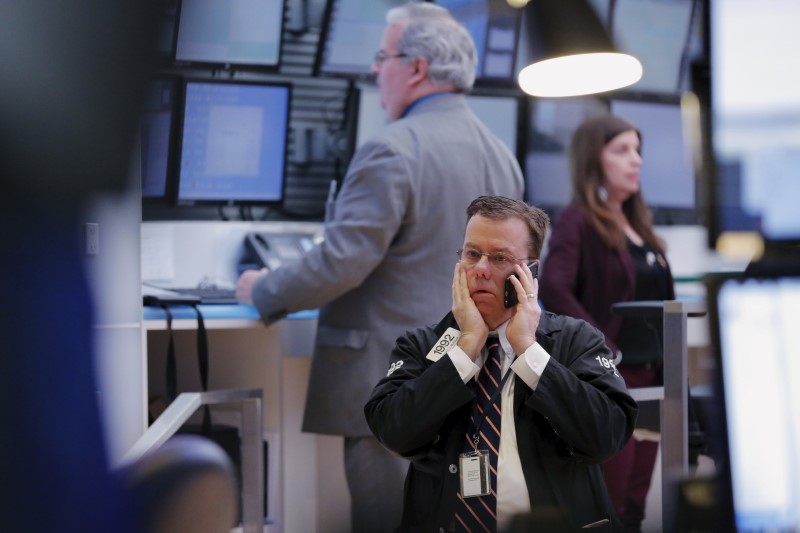By Yasin Ebrahim
Investing.com -- The Dow suffered a fall Thursday, as a rout in SVB Financial triggered a sea of red across banking stocks at a time when sentiment remains on edge ahead of Friday’s jobs report that could further bolster expectations for the Federal Reserve to step up the size of rate hikes.
The Dow Jones Industrial Average fell 1.7%, or 543 points, the Nasdaq Composite was down 2%, and the S&P 500 fell 1.8%.
SVB Financial Group (NASDAQ:SIVB) slumped 60% after the bank announced a $2.25 billion equity sale after revealing a $1.8B net loss and delivered negative annual and first-quarter guidance amid the impact from higher interest rates.
Unlike most banks, which are helped by rising rates, SVB Financial is “generally hurt by them,” Oppenheimer says, as its deposit base is “generally made up of commercial customers who are rate-sensitive.”
The slump in SVB Financial further soured the sentiment on banking stocks, which have been pressured by a deeper inversion in the Treasury yield curve – a harbinger for a recession.
The yield on the 2-year Treasury bond briefly jumped more than 100 basis points above the yield on the 10-year Treasury note, the deepest inversion since 1981.
Bank of America Corp (NYSE:BAC), Wells Fargo & Company (NYSE:WFC), and JPMorgan Chase & Co (NYSE:JPM) closed more than 5% lower. Crypto bank Silvergate Capital (NYSE:SI) plummeted 42% as it looks to wind down operations following a $1B loss in Q4.
Technology also played a role in the broader market, paced by a more than 1% stumble in Meta Platforms (NASDAQ:META).
General Electric (NYSE:GE), up 5%, bucked the trend lower after it reaffirmed 2023 guidance, forecasting adjusted earnings per share of $1.60 to $2.00 high-single-digit organic revenue growth.
PayPal (NASDAQ:PYPL) also remained above the flatline after chief executive Daniel Schulman said the company was seeing better-than-expected performance across the business amid a pick-up in consumer spending.
In other news, General Motors (NYSE:GM) fell nearly 5% after the automaker flagged a $1.5B hit from its voluntary separation program that will seek to buy out the “majority” of salaried stuff.
The slump on Wall Street comes just a day ahead of the nonfarm payrolls report that is expected to show that the economy created 205,000 jobs in February. Data on Thursday showed jobless claims rose by the most since October, just a day after the U.S. Labor Department reported data showing labor demand remains strong.
If Friday's jobs report shows further signs of a tight labor market, that could all but cement expectations that the Fed will step up the pace of rate hikes at its March meeting.
"We've had 10-months in a row of nonfarm payroll reports coming in higher than consensus, if you get 11 [on Friday] just as consensus is pushing toward a 50-basis point hike, then that probably becomes the base case," Joseph Sykora, Equity Analyst at Aptus Capital Advisors said in an interview with Investing.com's Yasin Ebrahim on Thursday.
